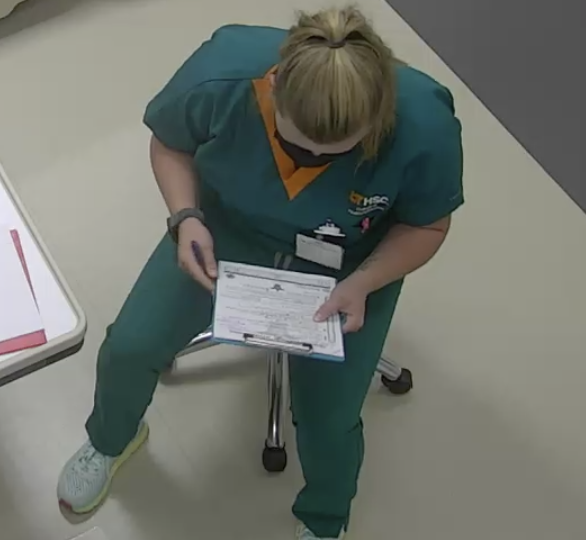SIM Debrief
As part of the Neuro Aspects course I'm taking in OT school, I participated in a clinical simulation encounter with a client that has a recent history of a stroke, specifically a right-sided cerebrovascular accident. I administered a cognitive screening assessment to decide whether this client needs further testing since their accident. To further explain, cognition can be described by having the ability to receive information into the brain and being able to understand without impairments. As occupational therapists, it is our job to help our clients get back to being as functionally independent as possible while ensuring safety. After assessing the client’s impairment, we can provide the client with an inclusive and individualized care plan and intervention, whether that included adaptive equipment or altering the way a client performs their ADLs or iADLs. This will allow us to have an effective plan while still letting the client have a say in their care and therapy.
My client scored a 20 out of 30 on his SLUMS screening assessment. This score indicates that he has a mild cognitive impairment. During the assessment, it was made apparent that he has left neglect and some memory impairments. Although this was not tested, he could potentially have problems with planning skills, decision-making, attention, and reasoning. At home, he could possibly have problems with medication management or taking his medicine too often, personal hygiene, and safety could be an issue when discussing his daily activities like walking or driving. When explaining the purpose of OT, I could have done a better job of defining what we do. I simplified what our roles is instead of giving an overview of OT. I tried to incorporate what he likes to do, in order to better understand OT’s importance in his life. From now on, I do think I will be more prepared by not being as nervous when interacting with clients. Looking back on today’s simulation, I think my nerves got the best of me at the very beginning, but towards the end I was more relaxed.
I think I did a great job on not letting my client see a change in my face or voice when answering a question wrong. I think I would have greeted him differently by verifying his identity with the wrist band. After working in a hospital for 2 years, I realize how easy it is for mistakes to happen and possibly end up caring for the wrong patient. I would have also explained OT differently like I stated before. My biggest take away is that I will not feel this overwhelmed whenever I get into the field and it will get easier. I let myself get anxious and stress the little details, which leads to me forgetting everything. In the future, I think I need to be more confident and have more faith in myself. I think this will make a difference with future clients and reassuring them that I belong. I think working towards getting to know my client will allow them to trust me as their therapist.



Comments
Post a Comment